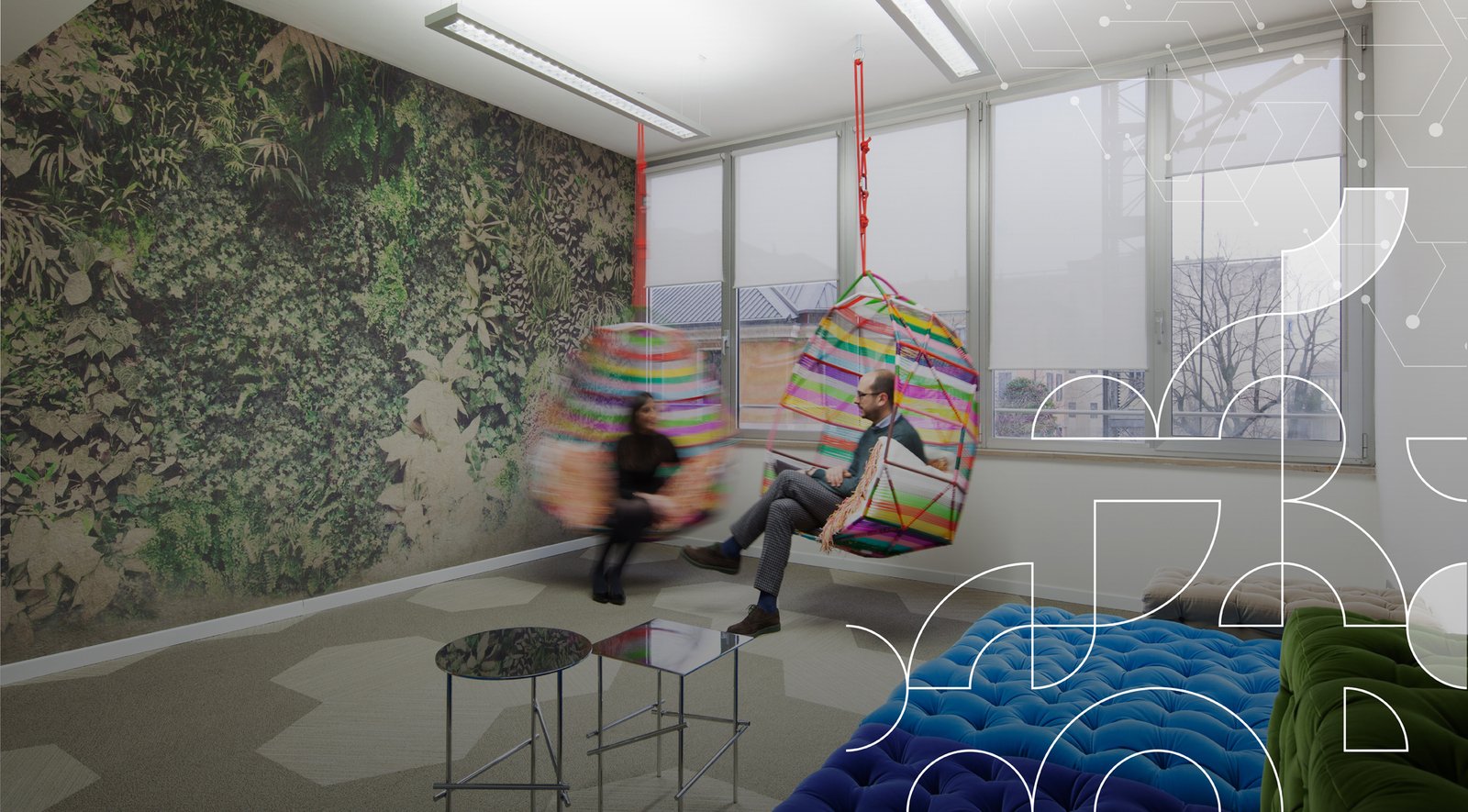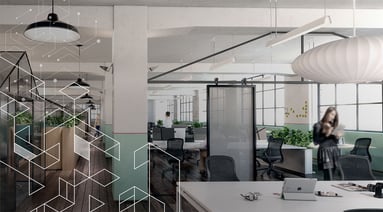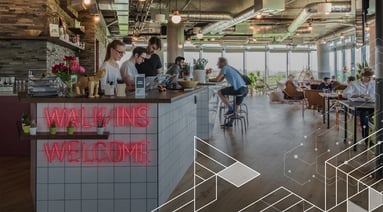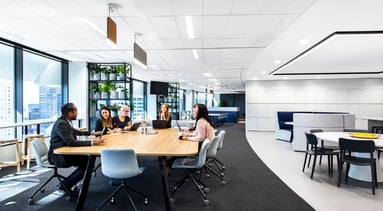
In a landscape of continuous disruption, the tech industry has been at the forefront of redefining the concept of workplace. To help executives meet the pace of change, we developed TECHscape, a collection of research, thought leadership insights and data on trends driving future workplace decisions.
Ecosystem of personality
Today, the tech sector talent pool is comprised of a variety of generational groups, working styles and personality types, and this diversity of experience and thinking is a powerful driver for innovation. But harnessing this more dynamic workforce will require a more dynamic approach to the workplace, especially for an industry perpetually engaged in a war for top talent.
The impact of personality
The tech industry has a very high employee turnover rate: 18.3% on average globally. In assessing the cause of this churn, many tech firms have started to explore the impact of personality type on employee engagement and long-term retention, seeking workplace solutions beyond a one-size-fits-all model to appropriately address employee needs.
Tech firms have started to use various personality assessments to better understand their workforce. Leveraging this methodology, many researchers have found a marked predominance of what are generally called introverts amongst computer professionals, particularly software engineers. These engineers have different workplace needs than other types of employees, some of which appear in mutual opposition to the goals of the business. But at Unispace, we think it’s possible to offer concentration-conducive workspaces engineers need while also activating shared office space, ideally supporting the strategic collaboration and innovation behind industry-changing ideas, products and services.
It's all about the engineer
There is a major talent shortage in tech, with a particular lack of software engineers—the industry’s most coveted and predominantly introverted talent base. Despite rising unemployment numbers in the wake of the Covid-19 pandemic, technically qualified candidates are becoming increasingly hard to resource and onboard. This talent gap is particularly glaring considering that tech companies are hiring whenever and wherever they can—software engineer hiring was up 12% at Google in 2020 despite Covid-19 and related economic contractions. 41% of IT hiring managers say finding tech talent is becoming harder every year.
The national average tenure for software engineers is just 35 months, a very fast cycle time when compared to other roles and industries. This average is even lower in the areas surrounding major existing tech hubs, such as San Francisco (27 months) and Seattle (28 months). This kind of constant turnover is disruptive and costly, and the physical workforce can tangibly mitigate this phenomenon.
Deloitte argues that workplace amenities will continue to be a key element in attracting and retaining tech talent. And while amenities like in-office dry cleaning, massage therapists, hair salons, bars and even nap pods are attractive to new employees, the future is going to require more. The focus will need to be not only how to attract and retain introverted engineers, but also how to unlock and harness their inherent value onsite.
Simply put, the workplace will need to enable the life of the software engineer—not impede it. This efficiency, in turn, translates into an improved work/life balance for employees, building loyalty while supporting productivity and, ultimately, reducing turnover.
The power of people
At Unispace, we think the next evolution of the tech workplace will hinge on thoughtful, human-centric space design: a new workplace format that encourages play and offers specific working style options for different types of workers.
Unispace’s Propeller framework is uniquely suited to balance the unique variety of personality types, working styles, and generations in the tech workplace, offering tech firms a competitive advantage in recruiting and retaining top talent. Put simply, Propeller maximizes space utilization alongside the effectiveness of every individual and every type of work, taking both quantitative and qualitative data into consideration.
Propeller adapts according to each individual’s work and personal circumstances, their locations (office, home, hub), their confidence around other people, and the experiences they need to have in addition to maximizing productivity and sentiment. It’s about movable and multi-purpose fixtures and furniture, and partitions and walls which can rapidly transform spaces from one function into another. It’s about maximizing the in-the-moment benefits of every experience for every group of people. And it provides the appropriate atmosphere for every occasion, with variable lighting, room scale, soundscapes, olfactory stimulants, textures, technology, wellness amenities and much more.
Propeller is ideal for the tech workplace, enabling maximum personalization while ensuring the space is active and supportive of collaboration. With the right data, all of this can be tuned to produce ideal results in tech, supporting software engineers while gently encouraging them to interact and collaborate as it fits into their goal-oriented workday.
Check out Unispace's Global Principal, Strategy Albert De Plazaola's articles in Commercial Construction & Renovation, FacilitiesNet, The Pulse, and INFORMS for more insights about building a dynamic workplace.
Interested in reading the full book?


